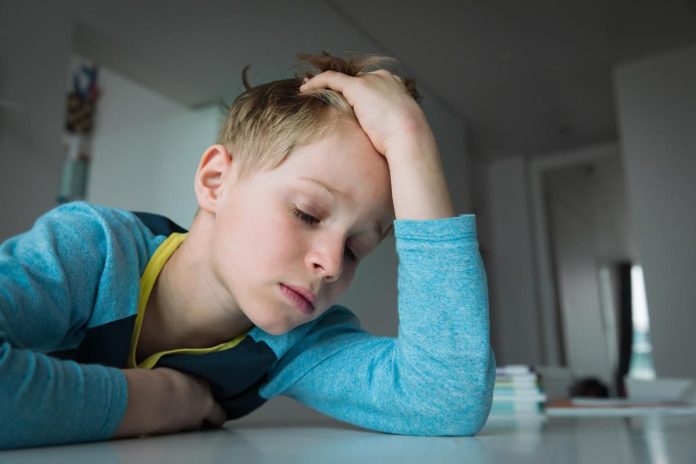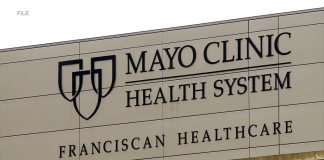With many kids across the province returning to organized sports, parents might be bracing themselves for the inevitable bumps and bruises that come with active play. If you’re concerned about how to decipher whether your child has suffered a concussion, Dr. Suzanne Beno, an emergency physician at The Hospital for Sick Children can help.
What is a concussion?
It’s a brain injury. The technical definition is “mild traumatic brain injury, resulting from a biomechanical force to any part of the body that can transmit energy up through the brain.” So, a concussion is not always the result of a bump to the head. A concussion can also result from a bump to the chest, face or neck if the force of the blow is transmitted up to the brain.
Unfortunately, mild traumatic brain injuries do not show up on neuroimaging tests, such as a head CT scan or brain MRI. While concussions result in characteristic symptoms, there is no real test that says: Yes, this is a concussion.
What should parents look for if they suspect their child has suffered a concussion?
The typical signs and symptoms of a concussion can happen immediately, or they can take up to a day to experience. So, parents need to be on the lookout for signs and symptoms that could develop after 24 hours, and up to 48 hours later.
We usually lump the signs and symptoms into four categories.
There are physical symptoms which would include dizziness, nausea or vomiting, neck pain, feeling a headache or pressure in the head. Parents might notice their child has balance problems or is a bit unstable. The child could have some sensitivity to light or blurred vision.
A child might also experience cognitive symptoms, such as fatigue, low energy, difficulty concentrating or remembering things. Noises may bother the child, and he may seem a bit drowsy or confused. He may have amnesia, and not remember the event.
The third group of symptoms is emotional. Concussions can change a child’s emotional state. A child might be a little bit more irritable; he may be nervous anxious or sad and might feel just generally emotional.
The fourth symptom concerns sleep-wake cycles. A child might have insomnia — he has trouble falling to sleeping or wakes frequently through the night. While some kids will actually sleep more.
At what point should you seek medical attention?
If there is any concern for a head injury or concussion, you should have your child assessed by a medical practitioner — either a physician or nurse practitioner who can do a comprehensive evaluation. You want an assessment from someone who can make a diagnosis that can help your child recover.
Parents should also be aware of any red-flag symptoms that would warrant calling an ambulance right away. These would include a change in mental status with or without a loss of consciousness, concern for a neck injury, seizures, vision changes or reduced motor functions in any part of the body, or you detect “deficits” such as an inability to speak properly .
Once you’ve confirmed your child has suffered a concussion, the thinking used to be you’d put the child in a dark room for days on end with zero stimulation. Is that still the case?
Rest is important for the first 24 to 48 hours, but kids don’t have to be in a dark room.
That initial period of rest should be restricted, with limited screen time and limited reading or any other activity that may stress the brain, but that’s only for the first 48 hours. We don’t want kids being active, but we advise no longer prolonged, complete rest.
We want kids to gradually increase both their physical and cognitive activity. We’ve come to understand that prolonged periods of rest can actually have a negative impact on recovery. After that first 48 hours, kids should start to have some low-impact exercise and activity to better recover.
What kind of activity would be appropriate?
The important thing, as children progress through this gradual increase in physical and cognitive activity, is that they maintain a level of activity that doesn’t produce symptoms or put them at risk for re-injury. You also want to ensure your child is sleeping and eating well.
Kids are more likely to re-injure themselves when they’re not functioning at their best, and re-injury can have more significant consequences during a time when the brain is healing and vulnerable. You want to avoid high-risk situations and ensure when your child resumes regular play and sports that he’s ready. So, we’re talking about a gradual, escalating level of activity without regressing.
How long can this take?
It depends on the child. Most kids will recover within one to four weeks. If after four weeks your child continues to have symptoms, he should be referred to a team of health professionals with different areas of expertise — a physician and occupational therapist, for example — who would work together on the best plan for your child’s recovery.
With so many concussions among kids the result of a sports injury, how do you feel about kids and sports?
We want kids to be active and play sports. We want them to be healthy mentally and physically.
More information
For more resources on concussion detection, treatment and recovery, check out:
- Parachute, a national charity dedicated to injury prevention.
- About Kids Health, a health education site, run by SickKids, for kids, youth and caregivers.
Healthy Kids poses health questions to experts at SickKids. Always consult your healthcare provider with specific concerns. Torstar is in a fundraising and educational partnership with SickKids Foundation to help raise $1.5 billion for new facilities.
JOIN THE CONVERSATION
Conversations are opinions of our readers and are subject to the Code of Conduct. The Star does not endorse these opinions.

We understand how important it is to choose a chiropractor that is right for you. It is our belief that educating our patients is a very important part of the success we see in our offices.




